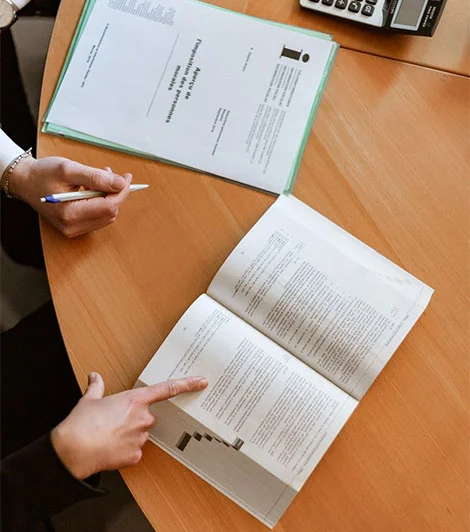NGO
Documents Process Cost to register a NGO
What are the type of NGO that one can register?
NGO can be registered in 3 different structures.
- Trust under Indian Trusts Act, 1882
- Society under Societies Registration Act 1860
- Section 8 Company under Companies Act, 2013
The most easy way is to register a Section 8 company

What can be the purpose/Objection of a Section 8 Company/NGO?
The Section 8 company can be registered only with the objective to promote non-profit objectives such as trade, commerce, arts, charity, education, religion, environment protection, social welfare, sports, research, etc.
The profits/incomes of the NGO if any, cannot be distributed as dividend but can only be applied towards the objective of a NGO
What are the documents required to register a section 8 Company/NGO?
The documents required are as follows:
- Pan, Aadhar and any utility bill of the proposed directors and shareholders.
- Rent Agreement and electricity bill of the proposed registered address
What is tax rate for NGO?
What are the minimum requirement to setup a section 8 Company?

What is the process to register a Section 8 company?
The process is a bit long and it takes around 25-30 days to get the company registered. The basic steps involved are as follows:
- Obtain Digital signatures of all the directors
- Apply for DIN
- Apply for Name Approval
- Prepare MOA, AOA and declaration in INC 13, INC 15
- Get a certificate from a Chartered Accountant
- Apply For license of NGO
- Once the License is approved the final step is to file INC 7 and get the registration certificate
The process is a tedious one and can be completed in 25 days.
What are the purpose of the forms to be filed
for registration of a NGO?
Form INC – 1
Form INC-1 is filed for the reservation of the name of the proposed company. The proposed should be unique and should not resemble to any other existing companies or trademark.
The name can be searched here http://www.mca.gov.in/mcafoportal/showCheckCompanyName.do.
Form INC-12
Form INC-12 is filed for the grant of the license to operate as a Section 8 company. Along with this form, applicants are required to attach a draft copy of the Memorandum of Association (MOA) and Articles of Association (AOA).
There is a prescribed format for Memorandum of Association of a Section 8 company in Form INC 13.


The other attachments to INC 12 are:
- Declaration by promoters:
INC-15 for the declaration by each subscriber to MOA that the draft memorandum and articles of association have been drawn up in conformity with the provisions of Section 8 - Estimated statement of Income & Expenditure for the next three years.
- List of proposed Promoters and Directors of the Company
Once the license is obtained the forms to be filed are:
SPICE Form:
This is the application for the incorporation of the company.
The following documents must be attached along with SPICE form:
- Memorandum and articles of the company duly signed by all the subscribers
- An affidavit from each of the subscribers and first directors in Form INC 9, that they are not guilty of any offense or misfeasance
- Declaration in Form INC 8 that all the requirements of the Companies Act have complied with
What is the difference between Trust, Society or a Section 8 company?
| S.No. | Basis of Difference | Trust | Society | Section 8 Company |
|---|---|---|---|---|
| 1 | Statute/Legislation | Trusts governed by the Indian Trust Act, 1882. | Societies are governed by the Societies Registration Act 1860, which is an all- India Act. Many states, however, have variants on the Act. | Section 8 Companies are governed by the Indian Companies Act, 2013. |
| 2 | Jurisdiction | The trusts are under the jurisdiction of Deputy Registrar/Charity commissioner of the relevant area. | The power to register a society lies in the hand of Registrar of societies (charity commissioner in Maharashtra). | The power to register a section 8 Company lies in the hand of Regional Director & Registrar of Companies of concerned state. |
| 3 | Registration Document | For Registration of Trust main instrument is Trust deed. | For Registration of society main instrument is Memorandum of Association and rules & regulations. | For registration of section 8Company main instrument is Memorandum and Articles of Association. |
| 4 | Stamp Duty | Trust deed to be executed on non- judicial stamp paper, vary from state to state. | No stamp duty required for memorandum of association and rules and regulations. | No stamp duty required for memorandum and articles of association. |
| 5 | Members Required | At least two trustees are required to register a public charitable trust. In general, Indian citizens serve as trustees, although there is no prohibition against non-natural legal persons or foreigners serving in this capacity. | Minimum:- Seven members are required for formation of state level society. Eight members required from separate states for formation of national level society. | Minimum 2 for a private company and 7 for a public ltd company. |
| 6 | Board of Management | Trusts are governed by their trustees or by board of trustees. | Societies are usually managed by a governing council or managing committee. | It is managed by the board of directors. |
| 7 | Legal Title | Legal title of the property of a trust vests in the hands of trustees. | In a society, all properties are held in the name of the society. | In section 8 Company, all properties are held in the name of Company. |
| 8 | Revocable/ Irrevocable | Indian public charitable trusts are generally irrevocable. | Societies may be dissolved. Dissolution must be approved by at least three-fifths of the society’s members. | A section 8 Company may be dissolved. |
| 9 | Tax return | Same in all three. To be filed annually | Same in all three. To be filed annually | Same in all three. To be filed annually |
| 10 | Annual Compliance | There is no requirement of annual of annual return filing. | Societies must file annually, with the Registrar of Societies, a list of the names, addresses and occupations of their managing committee members. | There is requirement compliance by filing of annual accounts and return of company with the RoC. |
| 11 | Online filing facility | Online filing facility is not available. Compliances are more complicated & time consuming | Online filing facility is not available. Everything has to be submitted in the office of Registrar of Societies in hard copy. Compliances are more complicated & time consuming. | Online facility is available. The Compliances, like annual filing, appointment & removal of directors, shifting of registered office, increase in capital, change in object clause & others can be done online at MCA portal. It is very easy, time saving and transparent process. |
| 12 | Time Period involved in registration/ formation | 10-15 days | 30-45 days | 60-75 days |
| 13 | Cost factor | Low | Medium | High |
| 14 | Registration with Income Tax u/s. 12A & 80G as NGO | At par with society & Section 8 Company. | At par with trust & Section 8 Company. | |
| 15 | From the point of view of Grant of subsidy by the government | Less preferred | Less preferred | Most preferred |
| 16 | From the point of view of Foreign Contribution Regulation Act, (FCRA) registration | Less preferred | Less preferred | Most preferred |
| 17 | Transparency in working | Low | Low | High as everything is available online. |
| 18 | Change in board of directors/ trustees Members | Easy | Complex | Easy |
| 19 | Change of Registered office | Difficult | Difficult | Easy |